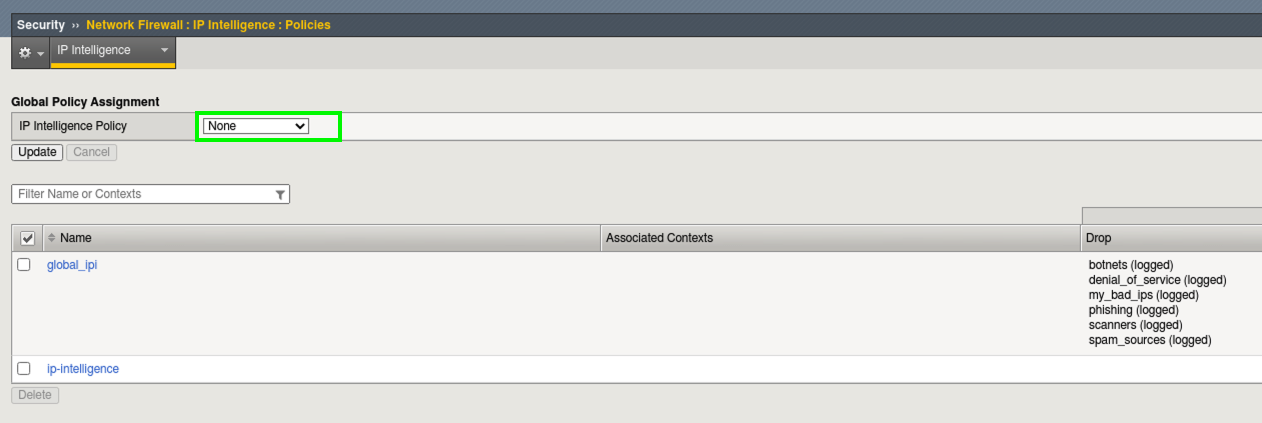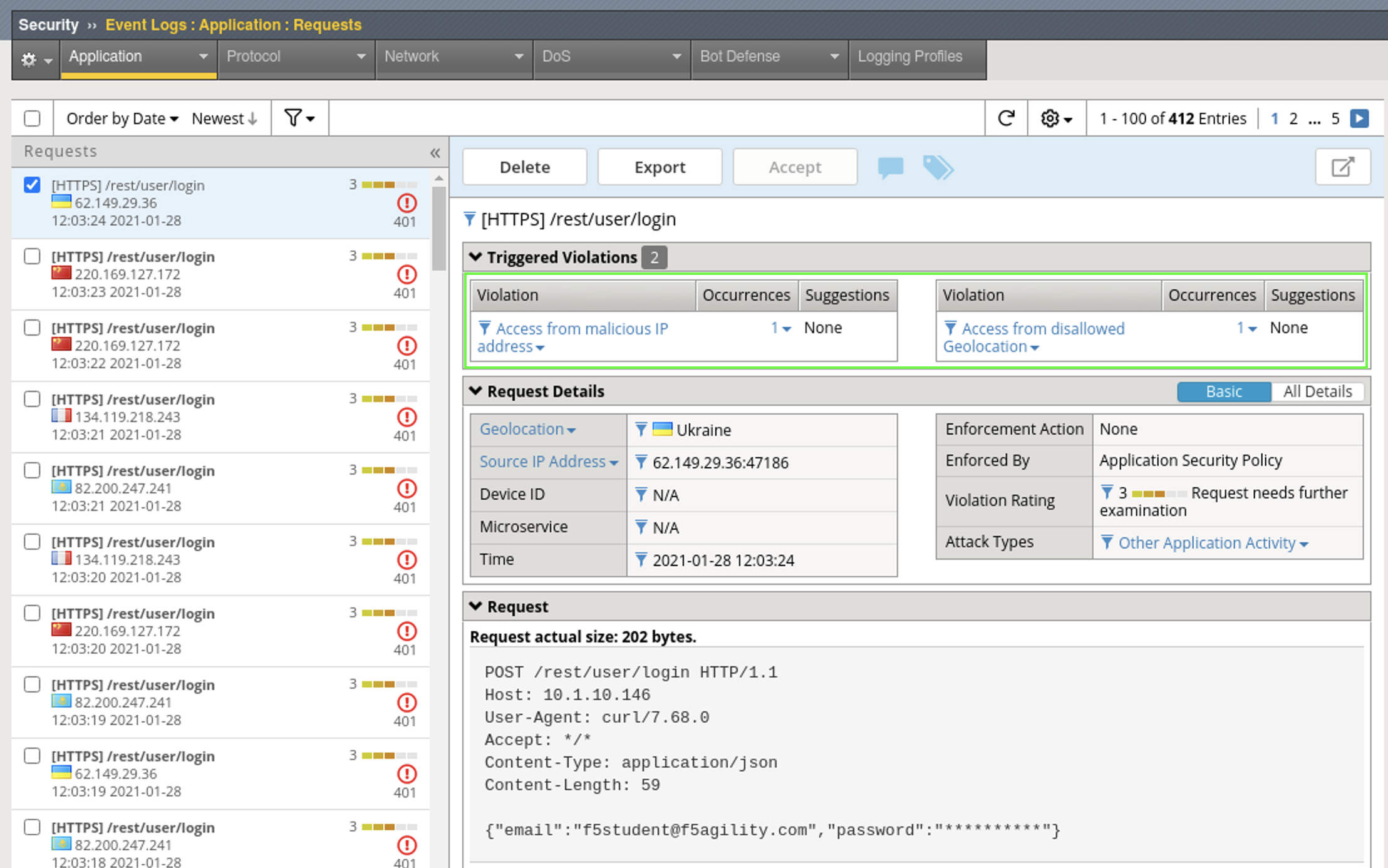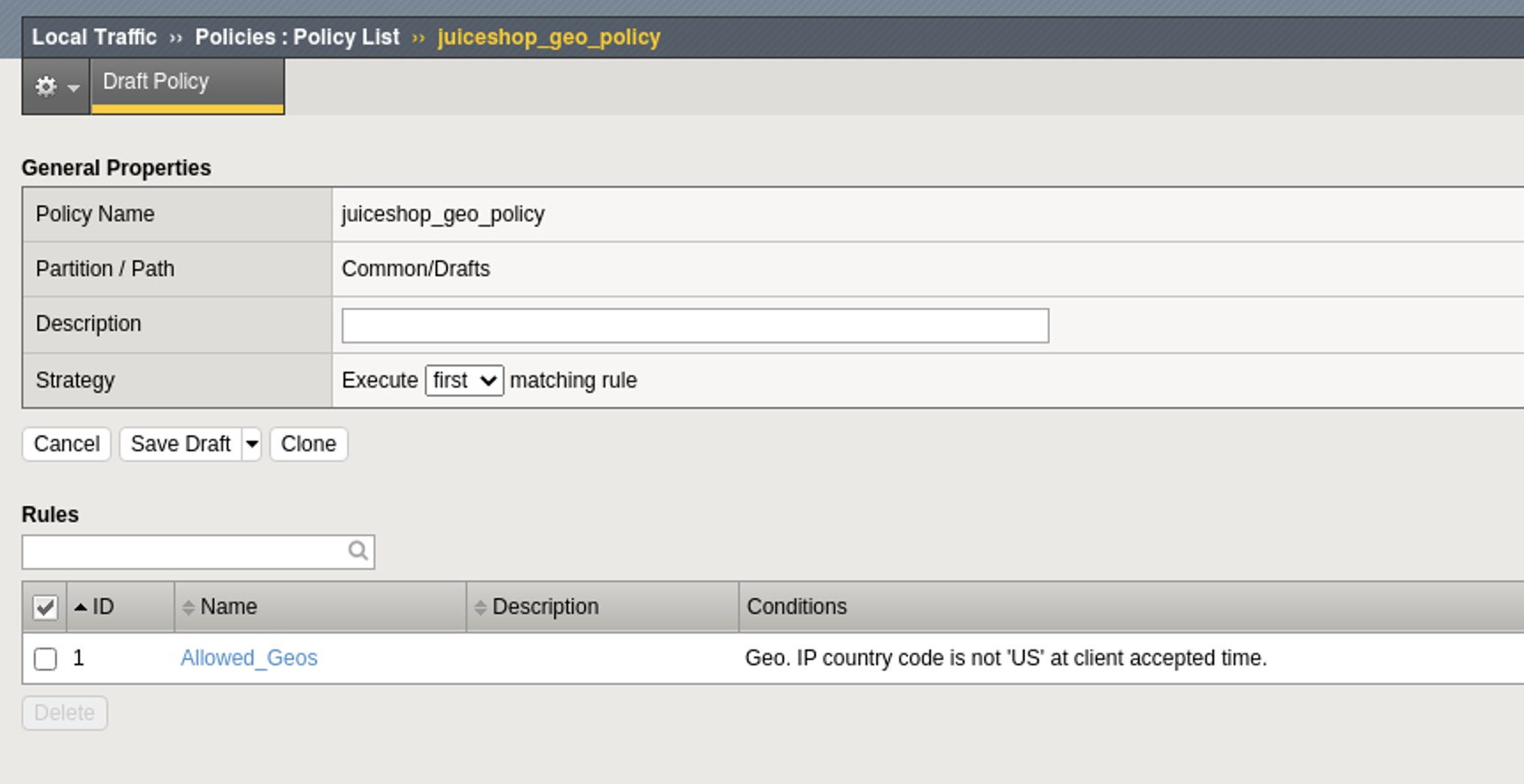F5 Web Application Firewall Solutions > WAF 101 - BIG-IP Security: Mitigating App Vulnerabilities with AWAF > Module 4 - IP Intelligence Source | Edit on
Lab 2 - Add a Geolocation Policy¶
Another practical control to implement early on in your WAF deployment is Geolocation blocking or fencing. If we know that our application is only supposed to be accessed from certain countries or not accessed from others, now is the time to get that configured and enforced.
Note
Much like our Layer 7 IPI Policy, with Advanced WAF the Geolocation logic happens at the policy level. You may have many policies each with their own unique configuration per application or you may use a parent policy that has baseline settings.
Geolocation¶
For demonstration purposes you will now disable the Layer 3 Global IPI policy to ensure Layer 7 Geolocation & IPI events occur.
- Browse to Security > Network Firewall > IP Intelligence > Policies and set the Global Policy Assignment to None and click Update.

- Open Security > Application Security > Security Policies. Select the juiceshop_waf policy created previously. Click General Settings > scroll down the right pane to Geolocation Enforcement.
- Select all Geolocations except the United States and N/A and move them to Disallowed Geolocations. Save and then Apply Policy.

Note
N/A covers all RFC1918 private addresses. If you aren’t dropping them at your border router (layer 3), you may decide to geo-enforce at ASM (Layer 7) if no private IP’s will be accessing the site.
- Navigate to Security > Event Logs > Application > Requests and review the entries in the event log that contain both IPI and Geolocation violations.

Note
You can also perform Geolocation Enforcement with LTM policies attached to Virtual Servers even if you are only licensed for Advanced WAF. Blocking decisions made here would not be reflected in the Application Requests WAF Log but can be still be logged.
Here is an example for future reference:

Congratulations! You have just completed Module 4 by implementing an IPI policy globally at Layer 3 and at Layer 7 via WAF policy for a specific application. Next you added Geolocation Enforcement to the policy and learned that this can be done via WAF policy or LTM policy. This follows our best-practice guidance for getting started with Application Security.